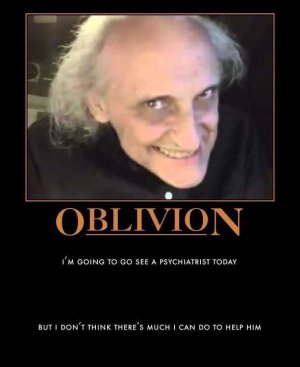grahamg
Old codger
- Location
- South of Manchester, UK
I remember reading a book about human behaviour called "the games people play", (I was probably introduced to it during a management course), and apparently during almost all interactions we're all guilty of trying to mislead one another to some degree or other.
Here is a website concerning this:
https://www.shortform.com/summary/g...MIxe-2pJTH-gIVJ-_tCh0hMwatEAAYAiAAEgJ8TPD_BwE
Quote:
"You probably know someone who regularly blows things out of proportion, or who insists on having the same argument over and over, or constantly tries to one-up other people. According to Dr. Eric Berne, a pioneering psychiatrist who broke away from the Freudian tradition, those are just two of the games that people play in work, love, sex, and friendship.
Games People Play is Berne’s 1964 classic about the many ways that we habitually relate to one another through “games.” These aren’t fun, harmless social games, though—they’re subtle, largely unconscious patterns that harm us and our relationships. Berne explains how most of us don’t even notice our games, and how we’re missing out on the fulfillment of game-free living."
Another review here:
https://medium.com/publiclibrarysg/popular-psychology-navigating-the-games-people-play-b59740e39c82
Quote:
"Transactional Analysis explores the dynamics of these interactions and sheds light on our "life scripts" (unconscious pathways developed during childhood and reinforced by our caregivers and other life events), need for “strokes” (social interactions where the person’s presence is recognised), tendency to "discount" (ignore information that could solve your problems) and our love for playing “games” (a series of interactions between two or more people that follow a predictable pattern)."
Games People Play remains a classic and an enjoyable read with detailed breakdowns of social games like “If It Weren’t for You”, “Wooden Leg”, “Why Don’t You — Yes, But”, “Frigid Women”, and “Kick Me”, amongst other interestingly named ones. Through analysing the various games, Berne explores the eerily familiar social interactions that we live through almost on a daily basis.
For example, in “If It Weren’t for You”, Berne provides an example of a woman whose Child ego-state strategically marries a domineering man who restricts her activities and so keeps her from situations that she is afraid of. In this game, instead of being grateful, she flips the situation and makes her spouse feel guilty about his parochial attitude in order to gain an internal advantage."
Here is a website concerning this:
https://www.shortform.com/summary/g...MIxe-2pJTH-gIVJ-_tCh0hMwatEAAYAiAAEgJ8TPD_BwE
Quote:
"You probably know someone who regularly blows things out of proportion, or who insists on having the same argument over and over, or constantly tries to one-up other people. According to Dr. Eric Berne, a pioneering psychiatrist who broke away from the Freudian tradition, those are just two of the games that people play in work, love, sex, and friendship.
Games People Play is Berne’s 1964 classic about the many ways that we habitually relate to one another through “games.” These aren’t fun, harmless social games, though—they’re subtle, largely unconscious patterns that harm us and our relationships. Berne explains how most of us don’t even notice our games, and how we’re missing out on the fulfillment of game-free living."
Another review here:
https://medium.com/publiclibrarysg/popular-psychology-navigating-the-games-people-play-b59740e39c82
Quote:
"Transactional Analysis explores the dynamics of these interactions and sheds light on our "life scripts" (unconscious pathways developed during childhood and reinforced by our caregivers and other life events), need for “strokes” (social interactions where the person’s presence is recognised), tendency to "discount" (ignore information that could solve your problems) and our love for playing “games” (a series of interactions between two or more people that follow a predictable pattern)."
Games People Play remains a classic and an enjoyable read with detailed breakdowns of social games like “If It Weren’t for You”, “Wooden Leg”, “Why Don’t You — Yes, But”, “Frigid Women”, and “Kick Me”, amongst other interestingly named ones. Through analysing the various games, Berne explores the eerily familiar social interactions that we live through almost on a daily basis.
For example, in “If It Weren’t for You”, Berne provides an example of a woman whose Child ego-state strategically marries a domineering man who restricts her activities and so keeps her from situations that she is afraid of. In this game, instead of being grateful, she flips the situation and makes her spouse feel guilty about his parochial attitude in order to gain an internal advantage."
Last edited:


